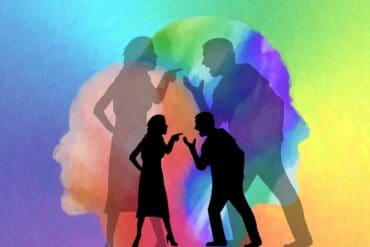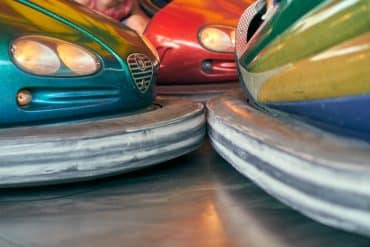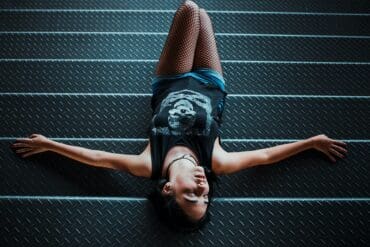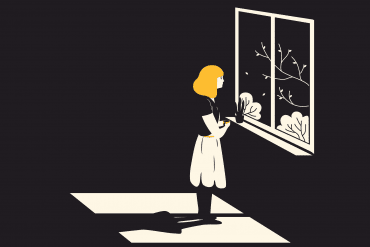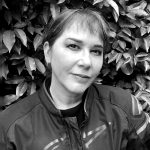That Warm Alaskan Welcome: Commercial Genetics and Mothers’ Secrets
Author’s Memo
The Phenomenon of Commercial Genetics
Commercial genetics testing has become a cultural phenomenon. As of 2020, thirty million people have bought DNA kits from companies such as 23andMe and AncestryDNA, according to Ancestry’s former president and CEO, Margo Georgiadi (Molla, 2020).
Who are these consumers? In her book The Lost Family: How DNA Testing Is Upending Who We Are, Libby Copeland identifies three types: 1) Avid genealogists; 2) Individuals who wonder if “Dad” is indeed their genetic father; and 3) Casual users, such as those who received kits as gifts (Copeland, 2020). This third category describes me: I bought a kit to learn about my ethnicity, but what I learned was that the man who raised me wasn’t my biological father—a situation that genealogists call a “non-paternity event” (NPE).
Autoethnographic Techniques
In this piece, I use autobiography to document discovering my biological father. For example, I use memory and self-reflection when learning that my father is my stepfather. I use supposition to recreate possible scenes. Finally, I use fiction techniques such as setting, narrative, and dialogue.
Next, I use ethnography to research my predicament, then follow feminist threads and cultural implications. I use observation to depict scenes and interviews with family members. Using myself as an NPE representative, I answer typical NPE questions: “Who is my father?” “How did I feel when I discovered my fathers’ identities?” “Did my fathers know?” “What does my mother say?” With these techniques, I’m aiming for evocative narrative feminist autoethnographic nonfiction.
The Fiction of Female Monogamy
Stories like mine are becoming more common. The idea that women are monogamous and men rove “is not only part of popular belief, it has also been enshrined by science,” reports an article about Sarah Hrdy, author of Mother Nature: A History of Mothers, Infants, and Natural Selection (Gewertz, 2000). Says Hrdy, “Female monogamy is fiction, not fact.” And yet, nonmonogamy’s social stigma led my mother to conceal my paternity. When asked why she hid my father’s identity, she wondered, “Because I was embarrassed?”
With this piece, I hope to challenge traditional notions of women’s sexuality and raise larger questions: “What’s a realistic picture of women’s sexuality?” “How often do men knowingly raise other men’s children?” “Could multi-partner relationship styles be older than we think?” “Could nonmonogamy be genetic?”
The Family in the Commercial Genetics Age
This year, Psychiatry Research published the first paper to examine an NPE’s aftereffects, which include depression, anxiety, and panic (Avni et al., 2023). It predicts that more individuals will seek mental healthcare for NPE aftereffects. I presume that these aftereffects are partially caused by the taboo of infidelity, which may lead mental health professionals to try to destigmatize nonmonagamy to help lessen their NPE patients’ symptoms. The rise of commercial genetics may also change family dynamics. Blended families may proliferate as DNA testing forces parents to be honest about children’s paternity.
As commercial genetics has revolutionized DNA technology, it may also revolutionize our ideas about women’s sexuality, nonmonagamy, and the family.
Note: Characters’ names have been changed to protect their privacy.
Reference List
Avni, C., Sinai, D., Blasbalg, U., & Toren, P. (2023). Discovering your presumed father is not your biological father: Psychiatric ramifications of independently uncovered non-paternity events resulting from direct-to-consumer DNA testing. Psychiatry Research, 323, 115142. https://doi.org/10.1016/j.psychres.2023.115142
Copeland, L. (2020). The Lost Family: How DNA Testing Is Upending Who We Are. Abrams.
Gewertz, K. (2000, October 19). Female monogamy is fiction, not fact, Hrdy says. Harvard Gazette. https://news.harvard.edu/gazette/story/2000/10/female-monogamy-is-fiction-not-fact-hrdy-says/
Molla, R. (2020, February 13). Why DNA tests are suddenly unpopular. Vox. https://www.vox.com/recode/2020/2/13/21129177/consumer-dna-tests-23andme-ancestry-sales-decline
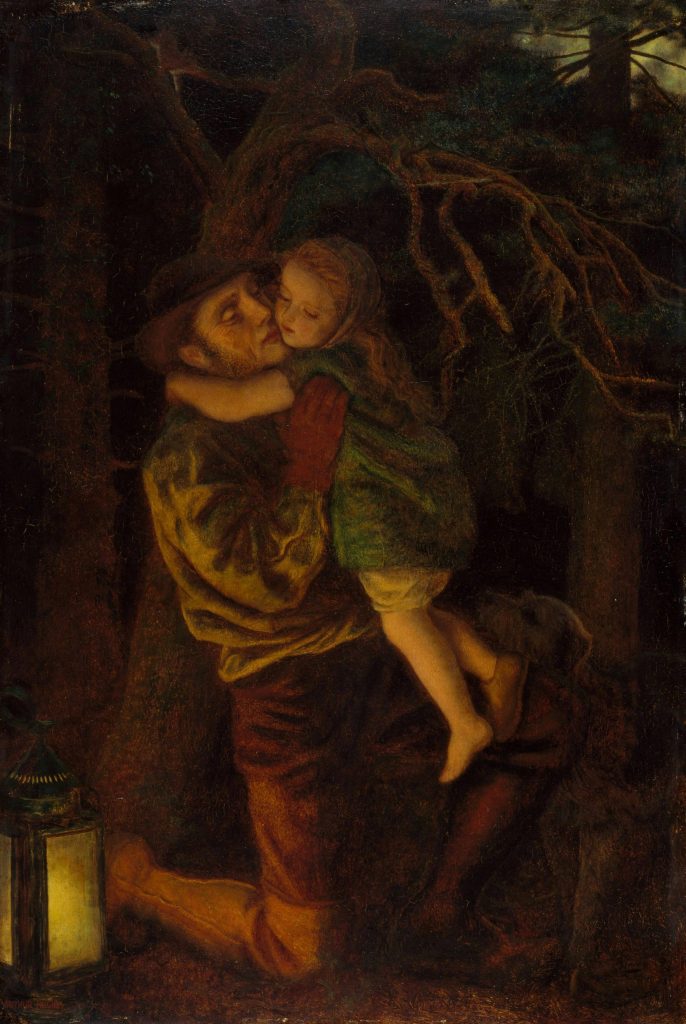
My Grandmother
They say that when a certain handsome soon-to-be-president senator visited Alaska in 1960, Edith Jensen, my grandmother, showed him the sights. They say that he and my grandmother were missing for a day. While she showed him the sights.
In his speech, the senator said, “Mrs. Jensen, Mrs. Price, Mr. Miller, ladies and gentlemen, I want to express my appreciation for that warm Alaskan welcome. I am delighted to come back here again….”
And when Edith arrived at the bar later, one of her fellow representatives—maybe Oral or Axel—might have said, “Hope you showed the senator our famous warm Alaskan welcome.”
This Isn’t 1960
But this isn’t 1960. This is 2017. And in 2017, I know nothing of this grandmother.
It’s 2017 and my heart is pounding. And Brendan is saying, “ I met someone else.”
I’m sitting on the couch petting Luna, drinking red wine, and clutching my knitting.
The heart is beating, beating, beating, beating through my black t-shirt. I stare at him in his La-Z-Boy.
“Who?” I ask.
He hesitates. “Um. Maeve,” he says.
Maeve, with her lush body, its smooth, white skin, her heavy red hair—so straight and thick and shining, maeve and Brendan. Giggling drinking sprees, late nights pinballing the streets together, tender missteps, their pale skin, throbbing excitement, drunken open-mouthed kisses.
Brendan sits in that brown La-Z-Boy, rushing to tell me the story of his love.
“Maeve wants to get married. Have children.”
“You hate children,” I say.
His blue eyes dream. “For her, I’d be a father.” He looks at me. “I don’t even know how you and I started living together. Did I ever say I loved you?”
My nostrils flare, shoulders tightening—and he sits there, calm, secure in his love.
It’s Us Against the World
“It’s us against the world,” he used to say.
San Francisco sidewalks—seeing Vertigo at the Castro Theater, drinking at Cafe du Nord, weaving through the Mission, where the traffic cacophonied along 16th. I told him then, which made him stop among the blare, that I loved him. He looked at me and smiled.
“I love you too,” he said.
Families made us sick with their beige propriety and happy childhoods and hypocritical Christmases and Dickensian-Victorian-pinkness. And when Brendan said that he’d grown up with a drunk for a father who told him every day of his life that he’d never amount to anything—until the day when Brendan was sixteen and lumberjack-burly (Brendan’s father, weaned on coffee starting at ten, stood five feet, six inches short) and he clinched his father’s collar and pulled his shriveled-up face toward his own smooth, fine-boned, lantern-jawed one, and said he’d better not say that ever again—I was in love.
Now Brendan says, “I’ve never felt this way about anyone. I would do anything for Maeve. She says I’m blossoming. I was talking to Carlos tonight. He said, ‘What if you dump Francesca for Maeve, and then Maeve dumps you. And you torched a twenty-year relationship to be with Maeve. Would you still do it?’ And I said ‘Yes.’”
Brendan eyes me. “I’ve gotta do this. I’ve gotta see this through.”
It’s happening, it’s happening, it’s happening. What I’ve dreaded and longed for and dreamed of and nightmared about.
I Can Get Ugly
“You can have a relationship. It doesn’t mean we have to break up,” I say.
Brendan’s smile turns to a sneer. “You’d stay with someone who doesn’t love you? Who never loved you? You want to be with someone who’s in love with someone else?” His lip curls. “You’re an extraordinary person,” he says, chuckling, but with fists clenched as he gets up from the chair and walks to the kitchen.
“Okay,” I say. “Well, I know with common law marriages, I have rights. I might be entitled to something. Maybe alimony.”
He turns to me, beer in hand, shutting the refrigerator. He walks toward me, smiling, eyes blazing. “Alimony? You want this to get ugly? Because I can get ugly.”
They think they can own each other. Think they can own the body of the other—will marry it by law. But he can’t government-sanctioned own her slow, soft, spreading smile—and she can never take him like others did, or can, or will.
I had thought I didn’t need marriage, that laws and money had nothing to do with whom I loved.
That night I sleep on the couch. I wake up alone, and then I remember. No job, no apartment, no roommate, no one there when I’m old, as we’d planned.
It was us against the world. And then it was us against each other. And then it was he and she against me. And now it’ll just be me.
A Random Meeting
Months later, I’m temping at a hospital and selling Brendan’s record collection on the weekends. I’m accepted into low-income housing. I’m okay and I’m doing the best I can. Months pass into a gray, day-to-day treading water. Couldn’t someone save me?
One Saturday, I’m walking into Safeway, and a sandy-haired man in his eighties with a ruddy, Scandinavian complexion walks out, beaming. His eyes flicker at me. “That’s Bill Jensen,” I think—an old friend of my parents. And I walk in.
I lie awake that night with Luna on my legs, on the couch that’s my bed in my new apartment with the peeling paint. Did he recognize me? Or did I just look like an attractive middle-aged woman? Bill Jensen. Haven’t seen him in thirty-five years. Always liked him. Mother didn’t like him. But I always liked him. He was a lot of fun.
He lived in a mansion in Capitol Hill. He and his second wife gave trick-or-treaters normal-sized candy bars on Halloween. Real candy bars. Not the snack size.
While we children sat in the living room, he would leave the kitchen where the adults were talking and he’d just smile at us, watching us play. He’d just drink us in.
Imagine having Bill as a father or boyfriend or husband. How he’d spoil you! You could have anything you wanted. A pony! A swimming pool! As many dresses as you wanted! It gives me a warm glow, in my new apartment with the peeling paint and a couch as a bed. Feeling so loved and protected and sheltered.
Dream Meeting
Why didn’t I say “hi” to him? He might have invited me to dinner with him and his third wife in his mansion in Capitol Hill.
If only I’d said, “Are you Bill Jensen?”
He would’ve said, “Yes.”
And I would’ve said, “I’m Francesca, Gordon and Maria’s daughter.”
And Bill would roar: “Francesca!” And give me an Alaskan bear hug. A complex cologne exuded from his suede blazer. He wore that perennial broad smile that said, “I’m here, world; I beam upon you! I take you in and you are beautiful!”
Bill stretched my hands out on either side of us. “My! How you’ve grown! The last time I saw you was twenty years ago!”
“Thirty!” I said. “At least.”
“How are your folks?” He asked.
“Oh, dad passed away last year. There was a memorial in Alaska.”
“Oh yes. I’m so sorry,” he said, face falling. “Gordon had quite a life. He always wanted to fly into the sunset. Remember that plane he had? One Mike Charlie?”
“Yes, he let me steer when I was a kid.”
He pointed a bunch of keys at a gold Mercedes. “Say, why don’t I give you a lift?” he said.
“Oh, I just live right over there. A block away.”
“All this time you’ve lived a block away!” he said. “Let’s have dinner. Anywhere you want to go. Canlis!” He handed me a thick business card with gold lettering. “You call me tomorrow.”
A squat grocery worker passed us, smiling. “This is the daughter of some dear friends.” he said.
Bill jogged to his car and slid in. “Tonight! Call me tonight!” he said.
I would have waved at the fading car, grinning.
23andMe
By September 2019, I get a permanent job. Things solidify.
I gift myself a 23andMe kit for a hundred dollars. What percentage African was I? What percentage Spanish? What percentage Taíno? Mailing my saliva is a dry administrative task. When my results return, none of my cousins—not my aunt, not my uncle—appear as relatives. 23andMe guesses that my sister, Amelia, is my half-sister. So I don’t share DNA with any of Gordon’s family. It makes sense. No wonder I hadn’t inherited Gordon’s left-brained Aspergian inclination to lecture and analyze. The unconscious had known, growing up. My straight hair. Different. My bad eyesight. Different. My paleness. Different.
Maybe my mother could explain. I would ask her that weekend.
Interviewing My Mother
“Go,” my mother booms. I step out of an elevator into the beige hall of my mother’s assisted living facility. She shuffles her walker behind me.
“I have a crush on another resident,” my mother says. “He’s married.”
“Yes, you told me,” I say. “Last week. What’s his name, again?”
She stops. “I don’t remember.”
“Well, what does he look like?”
“He’s very tall, like your father. But he’s kinda not all there.”
My mother, Maria, was born in East Harlem in 1934, to Puerto Rican immigrants who came to New York City in the 1920s. Her father was a New York postal worker and ombudsman, and the son of a plantation servant. Her mother, a seamstress in New York’s garment district.
We arrive at her room and enter. On the kitchenette counter is a photo book. A man in his seventies with glasses and wavy hair reads a newspaper.
“Who’s that?” Mother asks.
“That’s Dad. Your husband, Gordon.”
I turn the page to a mother and child.
“Who’s that baby?”
That’s your granddaughter, Quinn.”
“And who’s that? Is that Amelia?” A part-Puerto Rican woman, like me, in her forties with olive skin and wavy hair holds the baby.
“Yes, that’s Amelia, your daughter, my sister.”
“Really?” She asks.
“Yes.”
‘So my father could have been the milkman or a rapist or a lover of many years.
I flip the pages. The genetic results nag me. “I signed up with a website that tests your DNA,” I say. “and it says I’m not related to Gordon’s side of the family.”
“Hm,” she says.
“Were there any other men in your life besides Dad?”
She says, “There were so many men!”
I pause. “Okay… Do you remember if you had a boyfriend in Alaska in 1970?”
“I’m sorry, Cesca. I can’t remember.”
“You can’t remember any boyfriends you might have had?”
“I can’t remember!” she says.
Purgatory
So my father could have been the milkman or a rapist or a lover of many years. My sister was now my half-sister: My cousins and aunts and uncles were no longer my cousins and aunts and uncles. My father was no longer my father.
I sign up with three more DNA sites. I message with two distant cousins who are doing their own who’s-your-daddy research.
A year later, one of the cousins emails me pictures of random white men. How was I supposed to know who my dad was? He had to be in Alaska in 1970. “What about one of Edith Jensen’s boys?” My cousin writes back. “She had two sons: Bill and David. They lived in Alaska. My cousin includes a black-and-white college photograph of one of the sons.
I look at the photo, stunned. It’s my parents’ friend. Bill Jensen.
I google Bill Jensen and his relatives and send polite letters and emails asking if they knew how I might be related to their family. The phone rings. Linda, the daughter of Bill’s first wife, says, ”You know, my brother, William, told me there was a rumor that you were Bill’s kid. You should talk to my brother.”
My New Brother
I’m on the phone with William, Linda’s brother, Bill Jensen’s son. “So, here’s the story: you were mentioned in Dad’s will. We were working on his will and there’s a part about other children coming forward. I said, ‘Dad, What is this?’ And he says ‘Gordon and Maria’s daughter is my kid.’”
Then William says, “I have an account with 23andMe. Should I see if we connect? I just haven’t turned on that feature. Should I turn it on?”
“Uh… yes.” I say.
There’s a clicking of keys through the phone. “Okay, I’m doing it. Yup, you’re coming up. Eighteen percent. It says ‘half-sister.’”
The next day, William calls and says Bill’s third wife, Lena, had called to say that Bill had died during the night.
I tell William, “I saw Bill leaving the grocery store a couple of years ago.”
“That couldn’t have been him.” William says. “He never went to the grocery store.”
Several weeks later, I’m on the phone again with William, my new half-brother. “Mom says she remembers when you were born. She has information about Dad and your mom.” He says that she is sick and in an institution in Pasadena. I book a flight.
Interviewing My Mother Again
I return to visit my mother, Maria, as I do every week. We sit in her barren room in the facility. “Now, I need to cut your hair. It’s getting long. Can we do that today?” I ask.
“May we do that today.”
“May we do that today?” I ask.
“Oh, Cesca, not too short.”
I move the chair into the bathroom and open the Braun hair clippers. I drape a sheet around her shoulders and start cutting.
“So, remember how I signed up with a DNA website and none of Dad’s family was showing up as related to me?”
“Yes.”
“So, I found out who my dad is. It’s Bill Jensen.”
“Really?”
“Yes. Do you remember who Bill Jensen is?”
“Yes.”
“Do you remember being his girlfriend?”
“No. But I remember he was always chasing me.”
I pause. “Do you remember why you had a relationship with him?”
“I fell in love with him.”
‘I return to visit my mother, Maria, as I do every week. We sit in her barren room in the facility. “Now, I need to cut your hair. It’s getting long. Can we do that today?” I ask.
Hi, Sis
It’s January 22, 2022. I arrive at the hot, smoggy Pasadena airport and a white suburban pulls up. A hand pops through the sunroof. I wave, open the door, and peek in.
A large, sunburned man holds a white gift bag. “Hi, Sis!” William says. “I booked you at the Hilton. But first, let’s see Mom.”
Minutes later, William signs in at Bianca’s assisted living facility, hands over our Covid tests to the receptionist, and whisks me through the lobby, a large marble table with a giant flower arrangement at its entrance.
Bianca lies in bed, flat on her back. She is a well-preserved lady of indeterminate age with vanilla-colored hair and patrician features.
“Mom, do you want a glass?” William asks.
“Sure,” Bianca says.
William opens the closet and retrieves a bottle of white wine and a glass. He pours and then we settle by Bianca’s bed.
“Thank you so much for meeting with me,” I say. “William said you remember things from 1970, around the time I was born.”
“Yes, I remember,” Bianca says.
That Night
On an Alaskan spring night in 1970, Maria and Gordon and Bill and Bianca were having a cozy chalet party, just the four of them, mulled wine flowing. They were in their thirties. Bill strummed a guitar by the stone fireplace that Bianca designed. Maria, my mother, was 35 and slim then, with long wavy black hair and coffee-colored skin, high cheekbones, a straight nose, and full lips. She could have been singing in Spanish with her lulling voice. Gordon could have just come in from snowshoeing.
Bianca says, “Later that night, I saw Maria beckoning to Bill to come into the room with the double twin beds. This was the era of free love, remember. We weren’t hung up back then. Everyone was experimenting.”
“But that was my bedroom,” William says. Bianca nods. William looks at me.
“I wasn’t interested in whatever they had planned. I spent the night out on the deck.”
“It must have been freezing,” William says.
Bianca looks at us and continues. “A few months later, I walk into our place, and Gordon and Maria are lined up against the dining-room wall, waiting for me. Gordon was the one to talk. He said, ‘Maria is going to have Bill’s child.’ And I just turned and walked out.”
Bianca turns her head on the pillow and looks at me. “I got the feeling they wanted money from Bill.”
Bianca had a sense of right and wrong, and what they were doing was wrong.
Bumble
Months after Brendan dumped me, I open the App Store on my iPhone and search for “bumble app.”
The App Store description reads: “Millions of people have signed up for Bumble to start building valuable relationships, finding friends, and making empowered connections.”I download the app and swipe left for an hour.
My swiping finger freezes at a picture of a shirtless guitaring man yelling into a mic.
“Evan, 50. Poly, punk, geek, and generally interested. Up front: I’m married to a wonderful woman in a consenting mutually poly relationship. If that’s a no-go, understood. I’m cisgendered and about 95% straight. Don’t ask about the 5%, because you can’t afford the drinks to get me there.”
The photos show an ironic Christmas-card portrait of Evan and his wife, Evan camping, Evan drinking from a Dirty Dancing mug, possibly hung over.
Poly, punk, geek, and generally interested.
I click on the texting bubble, and type: “Hi, Evan, you have a great profile! I wonder if you’d be interested in meeting for coffee or a show.”
A conversation bubble pulses on the left side of the screen.
Bar Keys
William told me that in the 1950s, our grandmother, Edith, would slam her keys on a bar top and announce, “Okay, fellas! Who’s taking me home tonight?” The bar would erupt in laughter. A few hours later, the keys were gone. Someone might saunter over to Edith, dangling the keys in the air, and say, “How about that warm Alaskan welcome?”
Credits
Featured image by Gerry Ellis for Unsplash
Image by Birmingham Museums Trust for Unsplash
Learn More
New to autoethnography? Visit What Is Autoethnography? How Can I Learn More? to learn about autoethnographic writing and expressive arts. Interested in contributing? Then, view our editorial board’s What Do Editors Look for When Reviewing Evocative Autoethnographic Work?. Accordingly, check out our Submissions page. View Our Team in order to learn about our editorial board. Please see our Work with Us page to learn about volunteering at The AutoEthnographer. Visit Scholarships to learn about our annual student scholarship competition
Francesca Penchant is a designer, writer, and publisher who teaches editing at the University of Washington. She has an MFA with a focus in book arts and she creates books and ephemera for Rachilde & Co., an American micropress. Francesca lives with her husband in Seattle. Learn more at francescapenchant.com.



